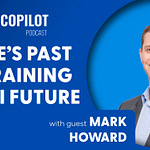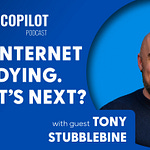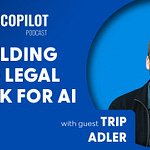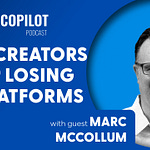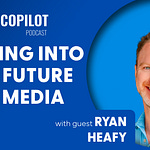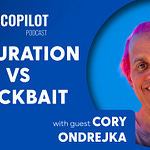Tech Policy Press founder Justin Hendrix argues the future of media depends on competition policy, public-interest guardrails, and resisting the “race with China” as a policy shortcut. Recorded at the end of August, this conversation cuts through hot takes to ask a more basic question: Who decides how AI meets democracy?
On this episode of The Media Copilot, host Pete Pachal welcomes Justin Hendrix, CEO and editor of Tech Policy Press, a nonprofit dedicated to provoking debate at the intersection of technology and democracy. Hendrix’s path from The Economist to NYC Media Lab to founding a policy newsroom, shapes a rare perspective; he speaks policy, product, and press.
Why this matters now
AI is disintermediating distribution, and while copyright disputes are one front, the larger issue is power concentration and whether compensation systems will evolve beyond lawsuits.
Hallucinations are colliding with a cultural tolerance for “good enough,” and as AI becomes the first stop for answers, society may settle for fuzzy outputs with real consequences when accuracy is the product.
Policy made in panic is tempting, and the “we must beat China” refrain can become a permission slip to steamroll safeguards, communities, and due process.
Antitrust is the tectonic lever, and remedies in landmark cases as well as Europe’s DMA could reshape bargaining power for publishers and the AI stack itself.
Key threads we unpack
Tech Policy Press’s mission: A public-interest forum that bridges academia, think tanks, and daily news in a way that is practical and usable for policymakers.
Copyright & training data: from fair-use maximalism to “giant theft” and why courts (not Congress) may decide the U.S. path.
AI in the wild: shifting from traditional crawling to prompt-time fetching and agentic behavior changing value capture.
Regulatory capacity: why gutting scientific and regulatory institutions worsens the knowledge gap in government.
Google & remedies: How antitrust decisions could reshape search, influence AI distribution, and shift leverage for publishers.
Media’s future equilibria: Possible futures include licensing content to AI agents, building proprietary agents, or even AI firms employing thousands of journalists, essentially an inverted version of the Bloomberg model.
Human habits are changing: The shift from NPR commutes to chatbot conversations highlights companionship, utility, and new risks such as so-called AI psychosis.
If Justin ran a newsroom today…
He would start by measuring exactly how AI is interacting with the newsroom’s content and shaping audience behavior. He’d push for greater competition and transparency in the ecosystem, then build strategically in areas that offer leverage. He’d actively experiment with APIs, pricing models, and agent partnerships, all while staying nimble and avoiding lock-in to any single platform.
Guest: Justin Hendrix — CEO/Editor,
Tech Policy Press :https://www.techpolicy.press/
📩 And if you enjoyed this conversation, I’d encourage you to follow the show on Apple Podcasts, Spotify, or any other podcast app that you want. Also, I’d appreciate it if you’d leave a rating or review — it really does help the show. And if you’re on YouTube, don’t forget to “like” the video and subscribe to the channel 🔔
You can also subscribe to The Media Copilot newsletter and visit mediacopilot.ai for exclusive resources, tools, and AI training courses built specifically for media professionals.
This episode of The Media CoPilot was produced by Pete Pachal, Executive Producer Michele Musso, and with video/audio editing by the Musso Media team. Produced by Musso Media. © 2025 Musso Media. All rights reserved.
Music: Favorite by Alexander Nakarada, licensed under Creative Commons by Attribution 4.0 License
© AnyWho Media 2025



